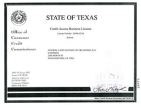Insurance Risks of Lending Out Your Car
Your brother wants to borrow your (significantly nicer than his) vehicle for a hot date, or your neighbor, whose car is in the shop, asks to borrow yours for a quick run to the supermarket. Should you say yes?
The insurance risks of lending out your car are significant. Before you toss those keys to someone else, here are a few things you should know.
Weighing the Risks
Even if you weren't the one behind the wheel, you can find yourself on the hook if someone has an accident in your car.
First of all, the accident can cause your insurance premiums to go up, even though you weren't the one driving. If the crash wasn't serious, you might consider paying for the damage with a quick-cash loan and avoid the insurance rate hike. If the accident was serious, causing injury to others and significantly damaging your vehicle, you will likely end up on the losing end, even though you weren't the driver.
Before you lend your car to another person, keep these things in mind:
- Find out if you're covered. If a friend or family member occasionally borrows your vehicle, or if you're asked to lend your car out in an emergency, your insurance will generally cover an accident—but find out for sure, because coverage varies by company and state. Before you give your consent to a would-be borrower, call your insurance agency and make sure your policy will cover an accident if it's caused by someone else driving your car.
- Check out your friend. When someone asks to borrow your vehicle, make sure the person has a valid license and a clean driving record. If your friend has his own vehicle insurance, that's even better—if he gets in a crash, his insurer may pay for some or all of the damages.
- Frequent flyer. If you are constantly sharing your vehicle with another person, like a relative or a roommate, it's best to add that person to your insurance policy. Bonus: Since they are on your policy, you can ask them to help pay for the insurance and even go halfsies on your car payment.
- Teen driver. If your child has gotten a permit or driver's license and will be using your car, add him or her to your insurance right away—and be prepared for a significant rate hike, since teen motorists are higher-risk drivers.
